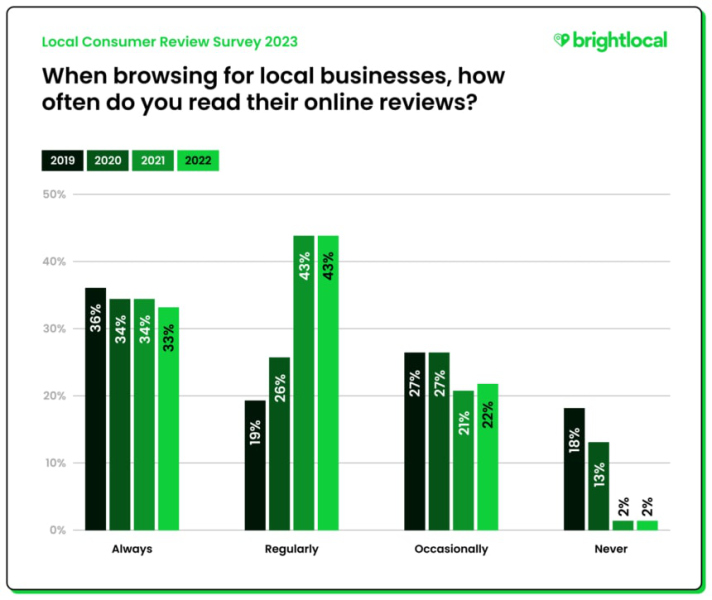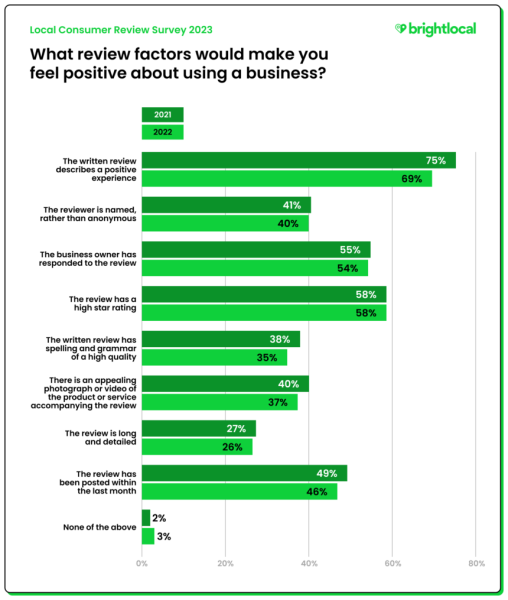
In today’s digital age, online reviews play a crucial role in the consumer’s decision-making process. They offer valuable insights into the quality and reliability of products and services.
However, the integrity of online reviews has been compromised by the proliferation of deceit, manipulation, and false information. This has tarnished the once-reliable domain of online feedback and diminished consumers’ trust in them.
Prevalence of Fake Reviews
The credibility of online reviews has been seriously undermined by the rampant spread of fake reviews across various platforms.
Unscrupulous businesses and individuals take advantage of the system, posting positive reviews for their products and services while maliciously criticizing their competitors.
This deceptive practice distorts the true quality of products and services, leading consumers astray and potentially causing them to make ill-informed purchasing decisions.
Due to the pandemic, a less-experienced group of online shoppers had to increase their reliance on the Internet for purchases.
As explained by Adrian Palmer, head of Henley Business School’s marketing and reputation department at the University of Reading, these shoppers adapted to the online shopping experience.
He stated that “they rely more on reviews to guide their buying decisions than on visiting physical stores. With the inability to physically interact with products, consumers had to use various tools to facilitate their online purchases.”
Palmer added that, in this case, reviews had become an essential source of information without tactile engagement. As a result, fake review schemes have proven advantageous for businesses that utilize them.
According to the World Economic Forum, as of 2021, fake reviews had significantly contributed to a staggering $152 billion in global spending on below-par products and services.
A January survey by SEO platform BrightLocal indicated that about 76% of consumers regularly consider reviews when purchasing.

Furthermore, around 75% of the surveyed buyers emphasized that positive reviews were the primary factor influencing their favorable opinion about a business.

However, Adrian Palmer warned that fake reviews disrupt the market by limiting access to original and unbiased information.
When buyers are deceived into believing that reviews come from genuine customers rather than being artificially generated by sellers, the market’s integrity is compromised.
Review Bias and Manipulation
In addition to the issue of fake reviews, the credibility of many genuine reviews also suffers from bias and manipulation.
Some companies incentivize customers to leave positive reviews by offering discounts or rewards, creating an imbalance in the pool of reviews.
On the other hand, frustrated customers may vent their grievances online, magnifying minor issues and unfairly damaging the reputation of a product or service.
Such biased reviews make it challenging for potential consumers to accurately assess the actual performance of a product or service.
Jemima Kelly, a columnist at the Financial Times, highlighted the distortion in online reviews, where everything seems exceptional or appalling.
She pointed out the shift in the rating distribution, now forming a “J-shaped” curve, with most reviews receiving either top scores or rock-bottom ratings and very few falling in between.
Kelly shared her recent experience during a trip to the US, where she stayed in a supposedly “luxury” Airbnb apartment boasting an almost perfect 4.85-star rating from 115 reviewers.
I recently stayed in a 4.85-starred AirBnb that I chose partly because it had some nice looking coffee table books so I decided it must be nice😏 Well it turned out it wasn't and these were in fact EMPTY CARDBOARD BOXES POSING AS BOOKS. This week's rant:https://t.co/TFxKT9zHjX
— Jemima Kelly (@jemimajoanna) July 20, 2023
Despite the high rating, the apartment had an intolerable, sickly sweet odor and other deficiencies that warranted a three-star rating.
Interestingly, the Airbnb host sent a passive-aggressive review nudge just minutes after her checkout, emotionally pressuring her to give a perfect 5-star review.
These days, two and three-star reviews have become exceedingly rare. A 2021 study by Nature found that over 80% of online reviews received three or five-star ratings. This has contributed to a “positivity problem” that makes it challenging for consumers to distinguish between products and services.
Users prefer extreme opinions, such as scathing criticism or excessive praise, to enable consumers to decide on a product or service. However, the real dilemma is that the truth often lies in the messy middle ground.
The Crackdown on Fake Reviews
Amidst the widespread and persistent threat of fake reviews affecting consumer confidence, authorities are taking action to tackle the problem head-on.
The Federal Trade Commission (FTC) announced in October 2022 its intention to implement new rules to combat deception.
The driving force behind these stricter guidelines and penalties is the realization that most people struggle to discern between genuine and fraudulent content.
Similarly, the UK government has stepped up by announcing plans to introduce the digital markets, competition, and consumer bill to Parliament.
UK to make fake reviews illegal and tackle ‘subscription traps’ https://t.co/kdGRl0cnbc
— UQAPA (@uqapa) May 2, 2022
This bill aims to curb the practice of businesses paying individuals to write fake reviews and offering incentives for submitting or commissioning such fraudulent content. It also addresses the issue of hosting reviews without properly verifying their authenticity.
In addition to the government’s efforts, Kay Dean, the founder of Fake Review Watch and a former federal criminal investigator, plays a pivotal role in debunking fake reviews.
She understands that discerning whether a review is fraudulent or not, in isolation, poses a significant challenge for the average consumer.
Inspired by her own negative experience with a medical provider based on deceptive reviews, Dean established Fake Review Watch.
Through her YouTube channel, she diligently exposes various tactics businesses use to deceive consumers, such as review manipulation and the employment of shady organizations that generate fake reviews on a large scale – commonly known as paid-review farms.
The original intent of online reviews was to serve as a valuable resource for consumers, providing genuine feedback to aid in making informed choices.
However, the pervasiveness of fake reviews, biased opinions, and inadequate verification mechanisms has significantly diminished their reliability and usefulness.
The lack of transparency and the exploitation of review systems by fraudulent businesses and individuals have eroded trust and confidence in online reviews.
Despite these challenges, legislative measures and vigilant watchdogs like Kay Dean offer hope for restoring the integrity of online reviews.
Related News
- Fake Reviews on Amazon are a Plague – Here’s how to stop Them
- All About Fake Online Reviews: The Problem of Separating Fact from Fiction
- How to Buy Electronics With Bitcoin in 2023 – 8 Best Stores Revealed
Wall Street Memes (WSM) - Newest Meme Coin
- Community of 1 Million Followers
- Experienced NFT Project Founders
- Listed On OKX
- Staking Rewards